
For those who are wary of “drugs,” it’s understandable that you may have some reservations about taking CBD oil or of how it may make you feel after you take it.
Fortunately, CBD isn’t going to get you high, no matter how much you consume.
But how does CBD oil make you feel?
Let’s dive into the answer and take a closer look not only at how it makes you feel but at how it impacts those who take it.
Unfortunately, there is no single answer to how CBD Oil will make you feel.
There’s still a lot to learn about cannabinoids and CBD oil in particular.
The effectiveness of CBD and cannabinoid-based products vary from person to person. Often, how it makes you feel is shaped by other factors, including the dosage, your lifestyle, and the reason you’re using it.
How you take CBD oil will also likely influence how well it will work for you. Taking CBD orally typically gives the best results, but if you take CBD a different way, it may not be as effective or deliver the desired results.
Everyone’s experience with CBD is unique, and the way CBD interacts with the body is different from person to person, depending on your needs.
Although people experience different effects when using CBD, because it’s an all-natural product it can contribute to a feeling of wellbeing, and is perfect for supporting a healthy lifestyle, so it’s very popular as a supplement taken before bed or as you wind down for the evening.
One thing we can say for sure is that CBD oil from a quality supplier will not make you feel high, strange, or loopy, as it doesn’t contain high levels of THC, which is the psychoactive ingredient found in recreational cannabis.
If you do feel these things, it can often be a placebo-style effect which some people sometimes notice because, in their head, they know they’re taking something to do with cannabis. If you do have any serious concerns, however, you should contact the manufacturer immediately.
CBD oil, also known as cannabidiol, comes from the Cannabis Sativa plant, or hemp plant.
Cannabis has been used for centuries as a food supplement to support general health and wellbeing, but the hemp plant is naturally low in THC, which means CBD oil doesn't contain high levels of THC, so a consumer won't get the same psychoactive high that a person who uses street cannabis will.
This oil is thought to have a multitude of health benefits, but research is still ongoing into the true impact it can have on the human body.
The oil is created by processing the hemp plant to create a concentrated CBD paste, which is then mixed with an edible oil, like hemp seed oil, to be sold in a concentration that can be used in a variety of ways.
You can also now find CBD in a number of different products like our water-soluble Absorb range, CBD patches, and topical CBD cream.
Throughout our bodies, we have various networks of receptors that play a large role in communicating with our brain and managing the functions of our bodies.
The cannabinoids found in the hemp plant, and in CBD oil, have been shown to interact with some of these receptors and it’s thought they simply help to support what your body needs and allow you to perform at your optimum.
One of these networks, which was initially discovered in 1992, is the endocannabinoid system.
Our endocannabinoid system (ECS) is a network of receptors that is thought to be intertwined with our central and peripheral nervous systems.
These systems play an important role in the day-to-day management of some of the core functions of our bodies and are responsible for keeping us in a state of physical and internal balance through a process known as homeostasis.
We know very little about how cannabinoids interact with our body, but the fact that the receptors are present suggests that they’re something our body needs to function at its peak.
Because there are very few possible negative side effects, none of which are extreme, CBD oil can be used as a health supplement with relative safety.
In fact, there is no documented evidence of any long-term ill effects from taking CBD oil, and as THC is only present in very low trace quantities, any risk of addiction or psychoactive hallucination is mitigated.
There are two kinds of receptors for the ECS; CB1 and CB2.
Most CB1 receptors reside in the central nervous system, where most CB2 reside in the peripheral nervous system.
When attached to an endocannabinoid, the receptors are thought to provide different services.
Unlike THC, which binds to a receptor in place of an endocannabinoid, CBD prevents endocannabinoids from breaking down.
If endocannabinoids break down before joining with a CB1 or CB2 receptor, they can’t alert the brain, so taking CBD oil can help to keep endocannabinoids intact and allow them to do their job properly.
There is still a lot to learn about CBD and its impact on the ECS, but this is why CBD oil is such a promising supplement for general health and wellbeing.
Despite what many people think, and although it is derived from cannabis, CBD oil does not make you high.
Within the cannabis plant, there are over 100 different compounds, and CBD is just one of those compounds, as is Tetrahydrocannabinol (THC).
Because it’s made from the low-THC hemp plant, full-spectrum CBD products contain only trace amounts of THC, so you needn’t worry about accidentally getting high from CBD, no matter how much CBD you consume.
THC is the main ingredient of recreational cannabis that will bring about a psychoactive “high.”
By comparison, CBD is not psychoactive at all.
Though CBD oils might have trace amounts of THC, this amount is far too small to create a high or even a slight buzz.
Since the THC compound inside a cannabis plant will bring about a high, it’s a common misconception that any part of cannabis contains a psychoactive element. However, it’s possible to extract different compounds of the cannabis plant without this side effect.
Broad-spectrum CBD or CBD isolates are repeatedly refined and processed to remove the THC, but full-spectrum CBD oils (like ours) keep the processing to a minimum to get the most benefit out of what mother nature has to offer.
Although this means there can be trace amounts of THC in a full-spectrum product, this is such a small amount that it can’t produce a high and is often undetectable even with laboratory testing.
Although CBD oil is generally safe and unlikely to cause side effects, there have been instances where people have taken too much CBD oil too quickly, resulting in a negative experience.
These limited side effects include:
While there is still a lot to learn about CBD and the ways in which it interacts with our bodies, we do know that it is safe to use, with the WHO stating that it is “generally well tolerated with a good safety profile” and that there is “no evidence of recreational use of CBD or any public health-related problems associated with the use of pure CBD.”
In our experience, side effects are very rare, and can typically be resolved by simply reducing the dose or frequency of use, or simply stopping the use of CBD altogether.
Finding the right dosage for you can take some trial and error, as it will vary depending on a number of factors, including age, diet, and overall health.
While there are online tools that can help with calculating an appropriate dose, one of the best ways to minimize the risk of side effects is to pay attention to how your body reacts to CBD daily after every use.
Another important step you can take to minimize the risk of side effects is to ensure any medication or supplements you’re taking are compatible with CBD oil.
Anything with a “grapefruit warning” is especially problematic, as grapefruit and CBD oil combined will disrupt drug metabolism in a person’s body. Similarly, blood thinners can also have issues when paired with CBD oil, so it’s important to discuss this with your doctor if you do plan to use CBD as a supplement for your wellbeing.
CBD oil isn’t a psychoactive compound, meaning it won’t give you that “high” feeling other cannabis compounds like THC will, but it can be a great supplement to support a healthy and happy lifestyle.
Although we can’t say what CBD Oil does and does not do, or how it makes you feel, we do know that it’s incredibly safe to use, and with so many potential benefits it’s always worth trying it to see whether it has any positive effects on your health.
We’ve had lots of customers who stopped taking CBD, thinking it was not having an impact, only to find that they noticed niggles and issues reappear after stopping their supplementation.
If you’re still unsure about whether CBD is the right choice for you, our co-founder Nick is an Osteopath with over 15 years of experience in the natural health field, and he’s happy to answer any questions you might have.
You can get in touch with him here.
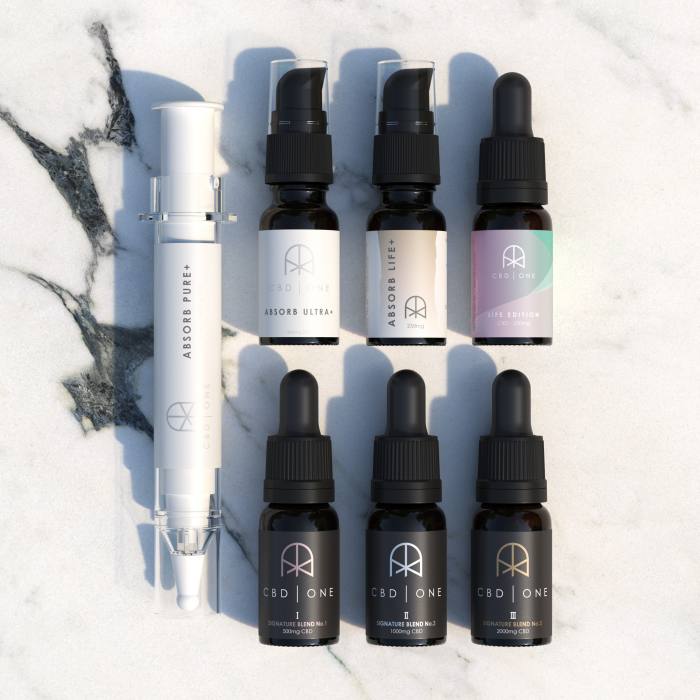
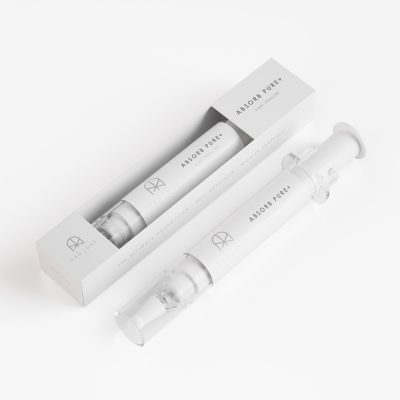
Bioavailability:?Bioavailability | 99% |
CBD content:?CBD content | 800mg | 1600mg | 4000mg |
Cannabinoid spectrum:?Cannabinoid spectrum | Full |
| Daily use: | Once daily |
Best for:?Best for | Powerful water-soluble option |
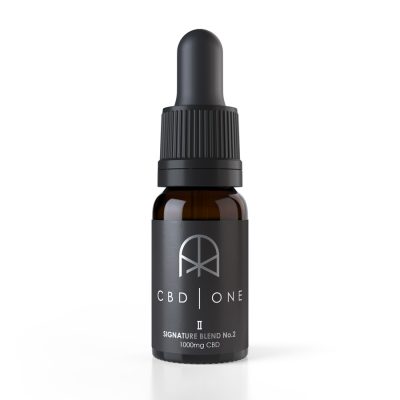
Bioavailability:?Bioavailability | 12 % |
CBD content:?CBD content | 1000mg | 2000mg | 5000mg |
Cannabinoid spectrum:?Cannabinoid spectrum | Full |
| Daily use: | 1-3 times |
Best for:?Best for | All round oil |
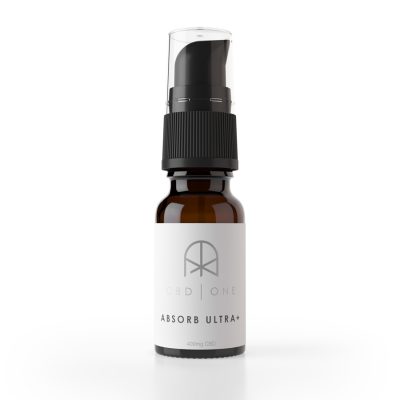
Bioavailability:?Bioavailability | 99% |
CBD content:?CBD content | 400mg | 800mg | 2000mg |
Cannabinoid spectrum:?Cannabinoid spectrum | Full |
| Daily use: | Once daily |
Best for:?Best for | Great all-rounder |
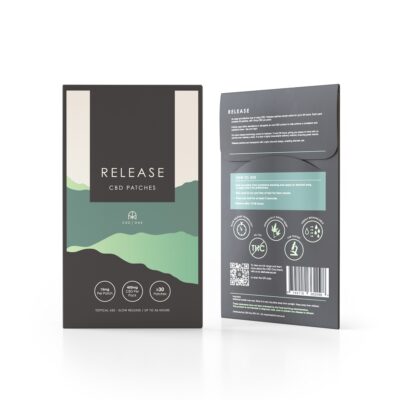
Bioavailability:?Bioavailability | 40%+ |
CBD Content:?CBD Content | 450mg | 900mg | 1350mg |
Cannabinoid spectrum:?Cannabinoid spectrum | Pure CBD |
| Daily use: | Once |
Best for:?Best for | Round the clock super-effective dosing |